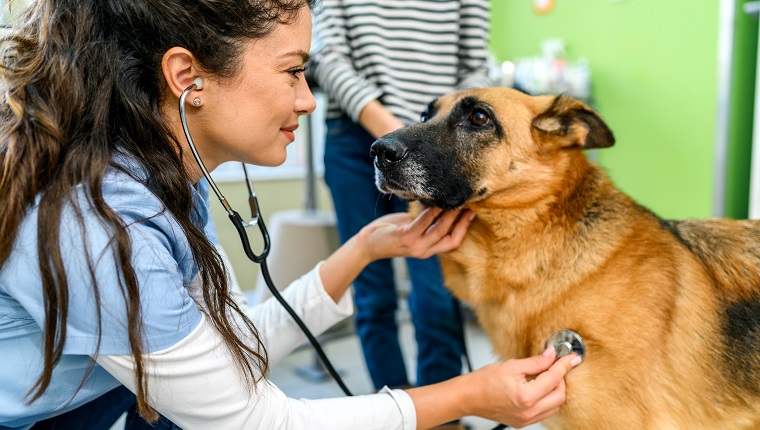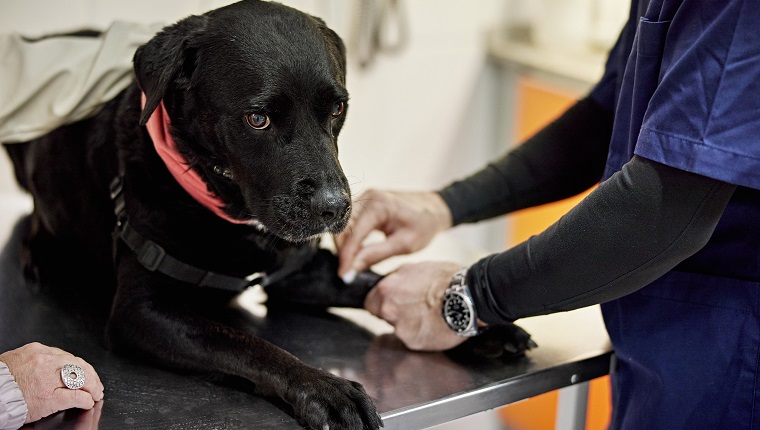Hypopituitarism in dogs is a medical condition that develops when a dog’s pituitary gland fails to produce enough of certain hormones. It can result in a number of symptoms and ailments, including head pain, dwarfism, and problems with vision.
In general, the condition seems to affect canines aged two to six months of age, as well as specific breeds, including German Shepherds and Karelian Bear Dogs.
If you see signs that your dog might be suffering form hormonal issues, then you must consult your veterinarian for a proper diagnosis and advice. Here’s what you should know about the symptoms, causes, and treatments of hypopituitarism in dogs.
Symptoms Of Hypopituitarism In Dogs
Hypopituitarism in dogs can produce a wide range of various symptoms depending on which specific hormones are affected.
Some of the most commonly seen symptoms include:
- Dwarfism
- Vision issues
- Alopecia
- Abnormally small sized genitals
- Head pain and head pressing
- Patches of skin turning darker
Causes Of Hypopituitarism In Dogs

The cause of hypopituitarism in dogs can be one of a number of things. Some of the most frequently attributed causes include:
- Deficient growth hormones
- Trauma
- Congenital factors
- Receiving radiotherapy
- Cystic tumors
- Pituitary tumors
Additionally, the following breeds of dog seem to be more likely to develop the condition than other canines:
- German Shepherds
- Weimaraners
- Spitzes
- Karelian Bear Dogs
- Toy Pinschers
Veterinary Treatments
If you suspect that your dog might be developing hypopituitarism, then your veterinarian will want to carry out a full physical examination of your canine.
They’ll conduct comprehensive blood tests as these are generally the most effective way to determine whether a dog is suffering from the condition.
Additionally, your vet will want to ask about any recent incidents that might have brought on the issue, including the possibility of your dog suffering a trauma.
If necessary, your vet may also use imaging techniques, such as x-rays. Vets sometimes use these in order to check for tumors or cysts near the pituitary gland.
When it comes to treatment, vets conduct many cases on an outpatient basis. They also often recommend use of growth hormone supplements. Vets generally prescribe these over the course of four to six weeks.
As ever, if your vet prescribes your dog any medicine or supplements, then it is vital that you stick to the precise dosage and frequency instructions along with completing the full course of treatment.
In cases where tumors are present, vets may further suggest surgery to remove them. However, the prognosis is often poor in these cases.
Has your dog developed hypopituitarism? What kind of treatment has your vet recommended? Tell us all about it in the comments below.









